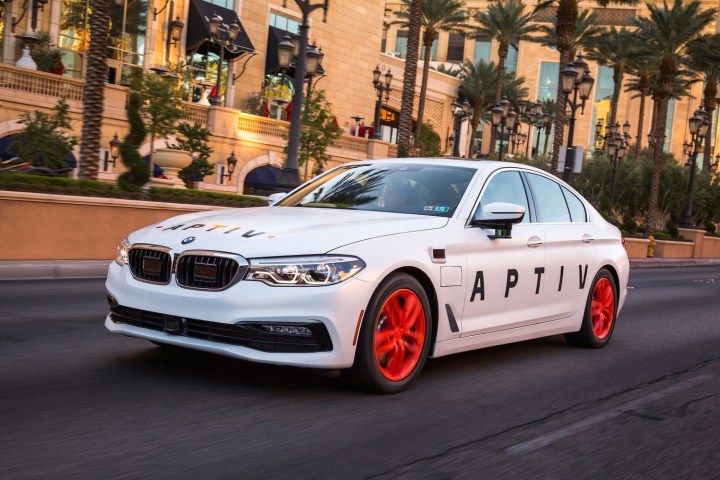
Delphi started out as a division of General Motors, but was spun off by GM in 1999. The company’s traditional focus has been on components for powertrains and other major automotive systems, all of which will now be the purview of the Delphi Technologies spinoff. As Aptiv, the company will focus on electronics and other technologies related to autonomous driving.
The move is based on an assumption that automakers will adopt self-driving cars en masse over the next few years. Given the number of autonomous-driving projects currently underway at companies like Ford and General Motors, one can see why Delphi/Aptiv executives would make that assumption. Aptiv plans to provide autonomous-driving systems that automakers can marry with their cars, essentially updating Delphi’s traditional supplier role for the new technology.
Aptiv wants to cut the cost of these systems to around $5,000 by 2025, CEO Kevin Clark said in an interview with Reuters. That’s an estimated 90 percent lower than systems available today. Clark said the price cut would be achieved by advances in technology, higher volumes, and by automakers redesigning their cars to better accommodate the necessary hardware.
Delphi was already heavily involved in self-driving cars before its reorganization as Aptiv. The company sent its own prototype self-driving car on a cross-country journey between San Francisco and New York in 2015, and joined the BMW-Intel-Mobileye autonomous-driving alliance after that. Earlier this year, it purchased Boston-based autonomous-driving startup NuTonomy.
Given the hype surrounding self-driving cars, it makes sense for a major automotive supplier like Delphi to want to reorient itself toward the new technology. But it isn’t alone. Another major supplier, Continental, is dabbling in autonomous-driving tech, as are a number of tech companies and suppliers of individual components, such as lidar company Velodyne. But self-driving cars need to be perfected — and accepted by the public — in order to generate the business these companies expect.


